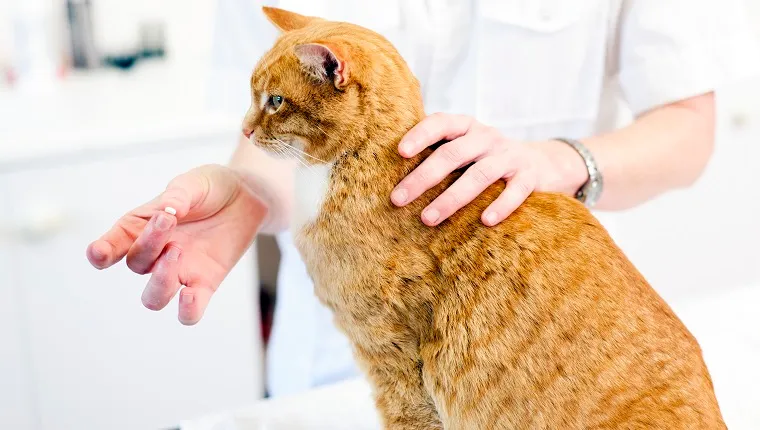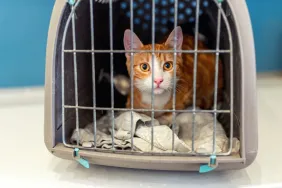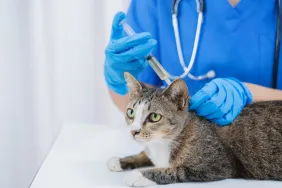Baytril is a medication that can treat cats for infections, and it’s actually the brand name for the drug enrofloxacin. It works by preventing bacteria from synthesizing DNA, which in turns kills the bacteria.
Baytril is an FDA approved medicine available by prescription. It’s an antibiotic that’s often prescribed by vets; although, it needs to be used with caution and can have some very serious side effects in cats.
Always make sure to closely follow your vet’s instructions for dosage and administering the drug. Here’s what you should know about the uses, dosages, and side effects of Baytril for cats.
Uses Of Baytril For Cats
Baytril is an antibiotic that’s mostly used to treat various infections in cats, including bacteria-based infections present on the skin and ears, in the urinary and gastrointestinal tracts, and the lungs and liver.
From a technical point of view, vets often prescribe this drug based on its ability to treat both Gram-negative and Gram-positive bacteria, which means it’s considered a broad spectrum antibiotic. It’s also a fast-acting medicine.
Dosage Of Baytril For Cats

The following is a guideline for typical use of the drug in cats and must not replace your veterinarian’s advice for your individual pet.
The exact dose of Baytril prescribed for your cat will depend upon the type of infection or ailment it is intended to treat, as well as other factors like your cat or kitten’s age and size.
Generally, cats should not receive more than 5 mg of the drug per kilogram of body weight per day.
Some vets advise dividing the daily amount into two doses provided twelve hours apart. They also usually recommend cats take it on an empty stomach.
Always follow your vet’s dosage instructions, and never give your feline two doses at once if you wind up accidentally skipping a dose.
Side Effects Of Baytril For Cats
Baytril is a strong and fast acting drug, which means that, while it’s useful at combatting a wide range of bacteria, it can also cause damage to your cat due to its strength and potency.
Some of the most common side effects of Baytril include:
- Vomiting
- Seizures
- Blindness (over the long term)
- Loss of appetite
- Lethargy
- Diarrhea
Make sure to always tell your vet about any other medication your cat is also taking or any past medical conditions before giving this medication to your cat. Report any side effects because your vet may wish to try a different treatment or change the dosage based on your cat’s response to the drug.
Do you have any experience with Baytril being prescribed to your cat? Did you see any side effects? Let us know in the comments below!









